Table of Contents[Hide][Show]
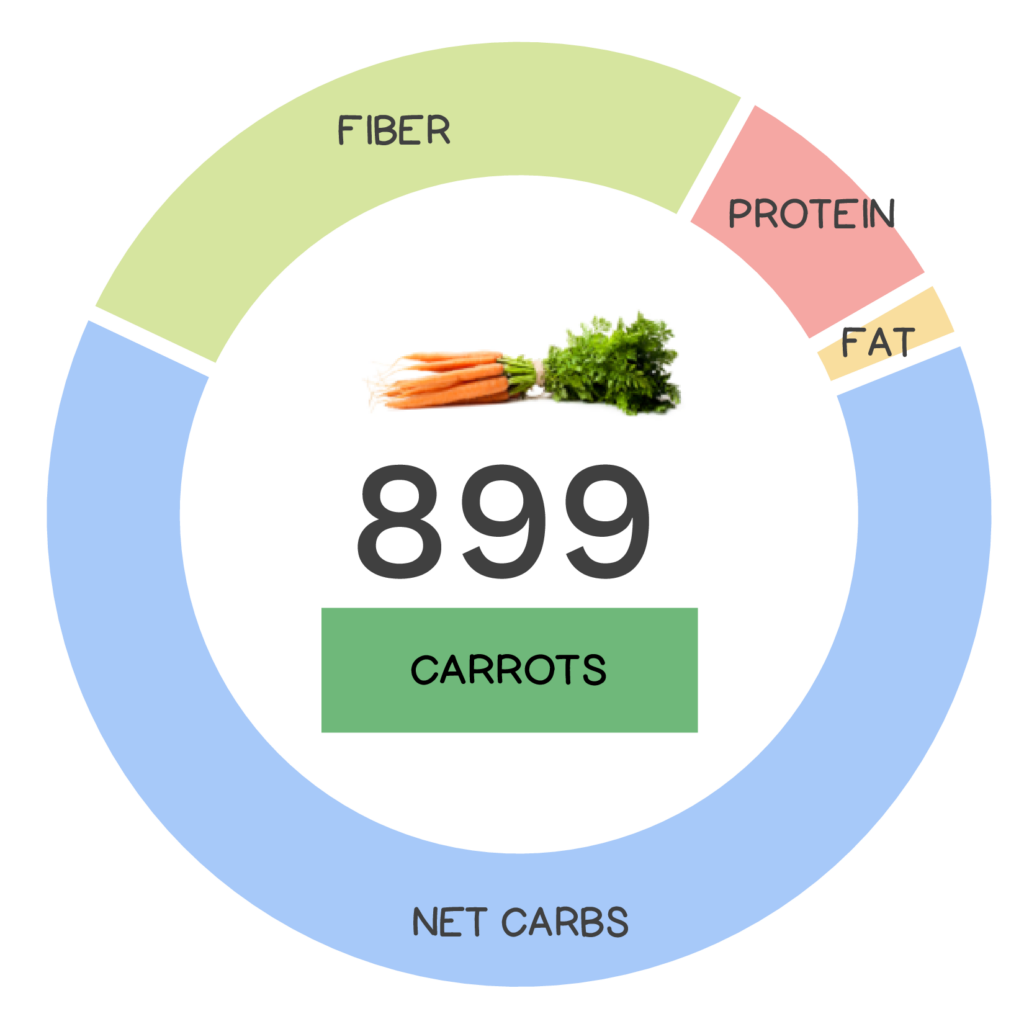
Carrots are ubiquitously loved by humans (and bunnies) alike! It’s no secret that they are an awesomely versatile root vegetable, great eaten solo for snacking or added to pretty much any recipe, plus they’re inexpensive, universally available and come in a rainbow of colors. What’s not to love? There’s seemingly nothing this widely popular veggie can’t do! Our deeply “rooted” love of carrots makes them one of the most common root veggies, so much so, that in some languages the word for ‘carrot’ is the same as the word for ‘root!’ And yet, Americans still only consume an average of 7.71 pounds of fresh carrots per year! Let’s see if we can’t “tap” into some science to help increase those numbers.
Carrots are members of the ‘parsley’ family, along with over 3,700 species including celery, parsnip, anise, caraway, dill, fennel, cilantro (aka coriander), cumin, and parsley.
The carrot, Daucus carota subsp. Sativus, is a member of the parsley family, also known as the Apiaceaefamily, or umbellifers, due to forming umbrella-like stem structures called umbels. It is a huge plant group with over 3,700 species, including celery, parsley, parsnip, anise, caraway, dill, fennel, cilantro (aka coriander), and cumin. Wild carrots are native to Europe and southwestern Asia, and it is believed that this plant originated in Persia over 5,000 years ago with cultivated carrots originating in Afghanistan before the 900s. Initially this veggie was cultivated for its aromatic leaves and seeds, not the roots that we generally eat now. The earliest carrots were purple, red, black, and white, while the orange carrots we have today didn’t appear until the 17th century, when farmers in the Netherlands selectively bred yellow carrots to create a high β-carotene variety. In fact, carrot cultivars can be grouped into two broad classes: ‘Eastern carrots’ domesticated in Persia during the 10th century or earlier that are purple or yellow in color and often have branched roots and ‘Western carrots’ which emerged from the Netherlands in the 17th century.
During WWII, the Royal Air Force credited carrots for improved success during night missions in order to disguise advances in radar technology.
Although they don’t directly improve your eyesight (contrary to the popular myth), they do help preserve night vision as well as protect against macular degeneration. During WWII, the Royal Air Force credited carrots for improved success during night missions in order to disguise advances in radar technology. The belief that carrots would help them see better at night was so pervasive that the British public produced a 100,000-ton surplus of carrots from their home gardens. That’s a lot of carrots!
The 3 Simplest Ways to Eat a Healthy Diet

Essential Eating Patterns for Lifelong Health
Learn the three science-backed eating patterns that support lifelong health, regardless of what diet you follow.
In this webinar, Dr. Sarah guides you to adopt these impactful eating patterns, embrace a permissive dietary structure, incorporate quality-of-life foods, and make small changes that collectively add up to make a substantial difference in your overall health.
Buy now for instant digital access.
Nutrivore Score for Carrot – 899

Carrots have a Nutrivore Score of 899, making them a super nutrient-dense food! Plus, they are a low-carb and low-calorie-density food; the calorie count of carrots is just 52 calories per cup!
Per serving, carrots are a best source (>50% daily value) of carotenoids and vitamin A; an excellent source (20-50% daily value) of polyphenols and vitamin B7 (biotin); and a good source (10-20% daily value) of dietary fiber, vitamin B6 (pyridoxine), and vitamin K.
Ditch Diets. Embrace Nutrients. Start with this FREE Guide.
Sign up for the free Nutrivore Newsletter, your weekly, science-backed guide to improving health through nutrient-rich foods — without dieting harder —and get the Beginner’s Guide to Nutrivore delivered straight to your inbox!

Carrot Nutrition Facts
One serving of carrots is standardized to 1 cup or about 128 grams (4.5 ounces). To put this into perspective: one serving of carrots is roughly equivalent to 2 medium-sized carrots. When you cook carrots, they reduce in volume: 1 cup raw carrots is equivalent to a little over 3/4 cup cooked carrots.
Carrot Nutrition Facts Per Serving
| Carrots, raw | Nutrivore Score: 899 | Nutrient Density: Super! |
|---|---|---|
| Serving Size: 1 cup or 2 medium (128 grams) | Protein: 1.2 grams | Net Carbohydrates: 8.7 grams |
| Calories: 52 | Total Fat: 0.3 grams | Dietary Fiber: 3.6 grams |
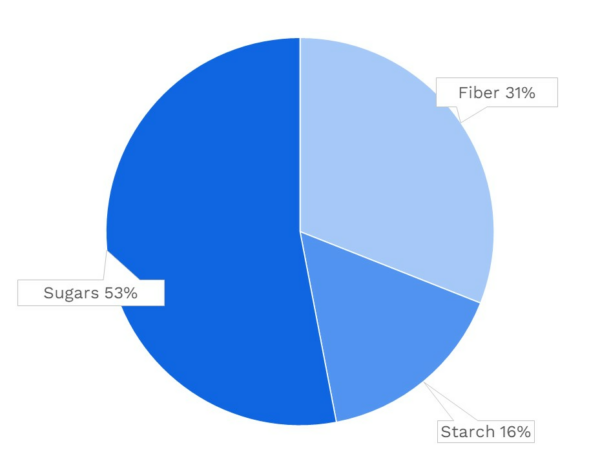
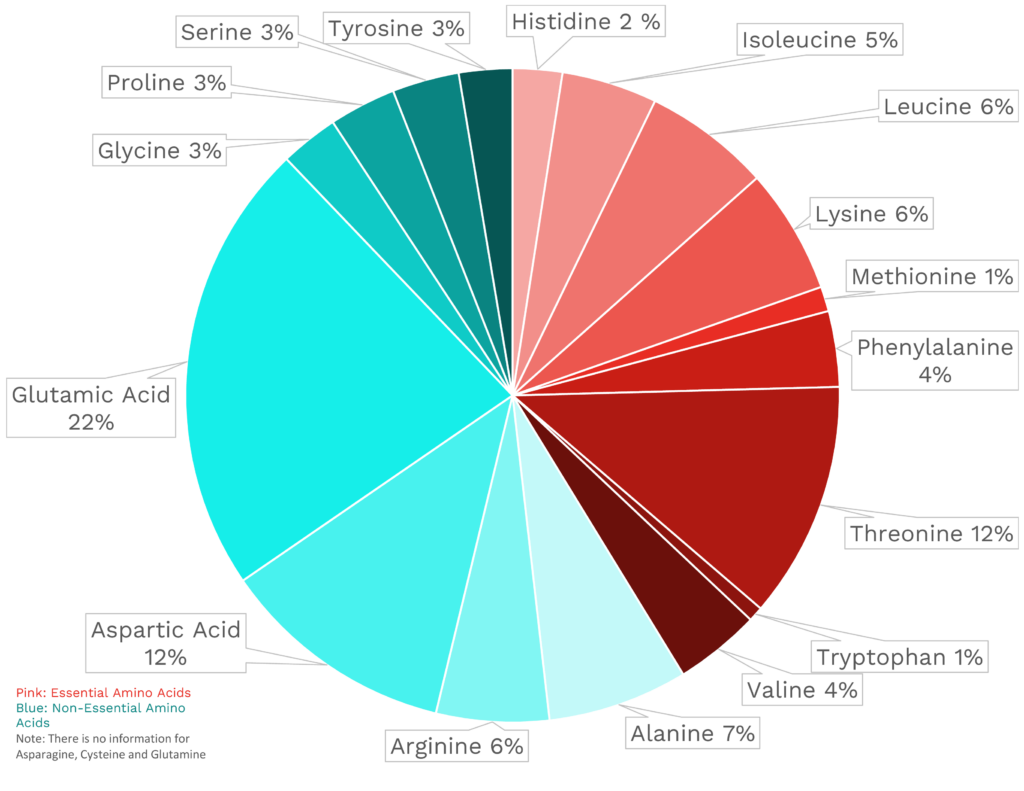
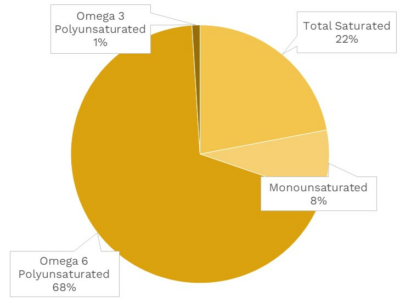
| VITAMINS | ||
|---|---|---|
| Vitamin A | 1068.8 μg RAE | 119% DV |
| Vitamin B1 (Thiamin) | 84.5 μg | 7% DV |
| Vitamin B2 (Riboflavin) | 74.2 μg | 6% DV |
| Vitamin B3 (Niacin) | 1.3 mg | 8% DV |
| Vitamin B5 (Pantothenic Acid) | 0.3 mg | 7% DV |
| Vitamin B6 (Pyridoxine) | 176.6 μg | 10% DV |
| Vitamin B7 (Biotin) | 6.4 μg | 21% DV |
| Vitamin B9 (Folate) | 24.3 μg | 6% DV |
| Vitamin B12 (Cobalamin) | 0.0 μg | 0% DV |
| Vitamin C | 7.6 mg | 8% DV |
| Vitamin D (D2 + D3) | 0.0 μg | 0% DV |
| Vitamin E | 0.9 mg | 6% DV |
| Vitamin K | 16.9 μg | 14% DV |
| Choline | 11.3 mg | 2% DV |
| Myo-Inositol | 15.4 mg | ~ |
| CoQ10 | 0.3 mg | ~ |
| FUNCTIONAL FATS | ||
|---|---|---|
| MUFA | 0.0 g | 0% DV |
| ALA | 2.6 mg | 0% DV |
| EPA + DHA | 0.0 mg | 0% DV |
| CLA | ~ | ~ |
| Linoleic Acid | 0.1 g | 1% DV |
| MCT’s | 0.0 g | ~ |
| MINERALS | ||
|---|---|---|
| Calcium | 42.2 mg | 3% DV |
| Copper | 57.6 μg | 6% DV |
| Iodine | ~ | ~ |
| Iron | 0.4 mg | 2% DV |
| Magnesium | 15.4 mg | 4% DV |
| Manganese | 183.0 μg | 8% DV |
| Phosphorus | 44.8 mg | 4% DV |
| Potassium | 409.6 mg | 9% DV |
| Selenium | 0.1 μg | 0% DV |
| Sodium | 88.3 mg | 4% DV |
| Zinc | 0.3 mg | 3% DV |
| PHYTONUTRIENTS | ||
|---|---|---|
| Carotenoids | 15384.3 μg | ~ |
| Polyphenols | 199.7 mg | ~ |
| Phytosterols | 24.8 mg | ~ |
| Glucosinolates | ~ | ~ |
| Thiosulfinates | ~ | ~ |
| Betalains | ~ | ~ |
| AMINO ACIDS & PEPTIDES | ||
|---|---|---|
| Taurine | ~ | ~ |
| Ergothioneine | ~ | ~ |
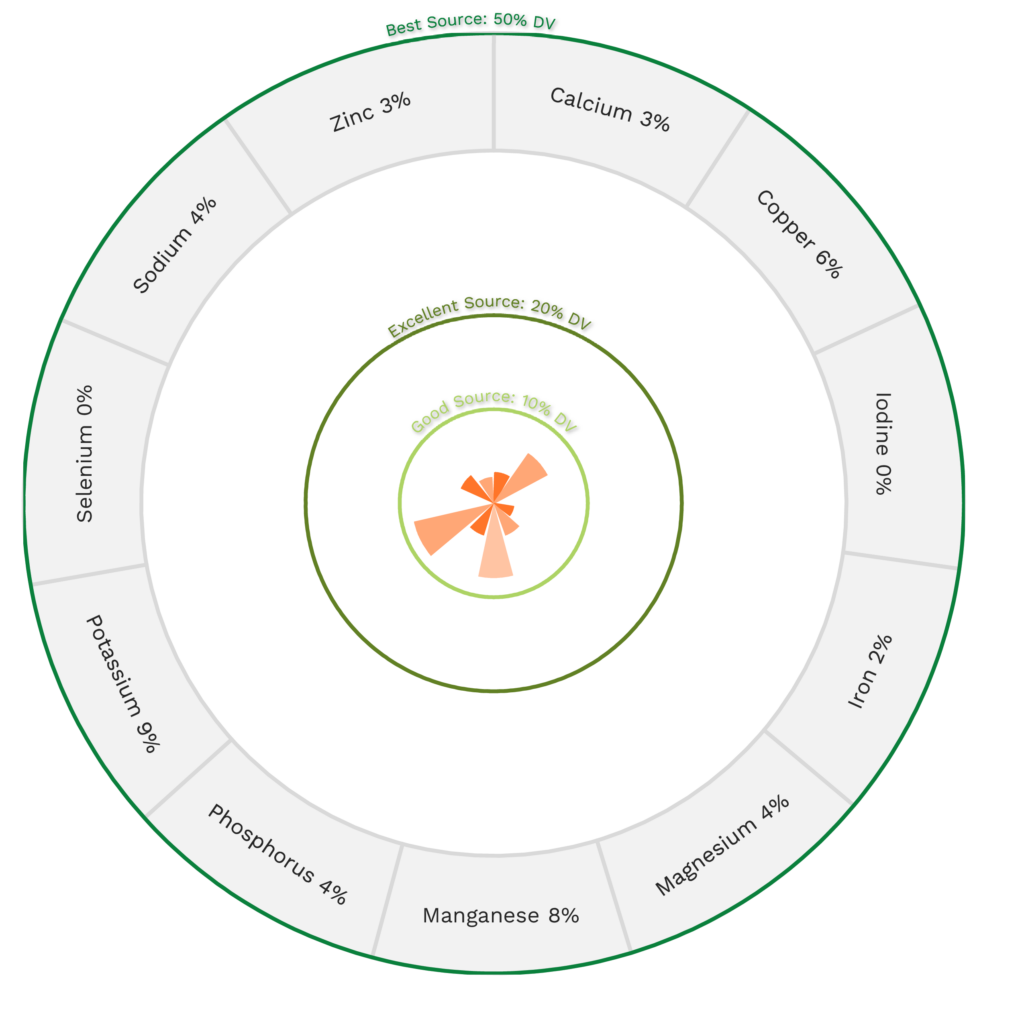

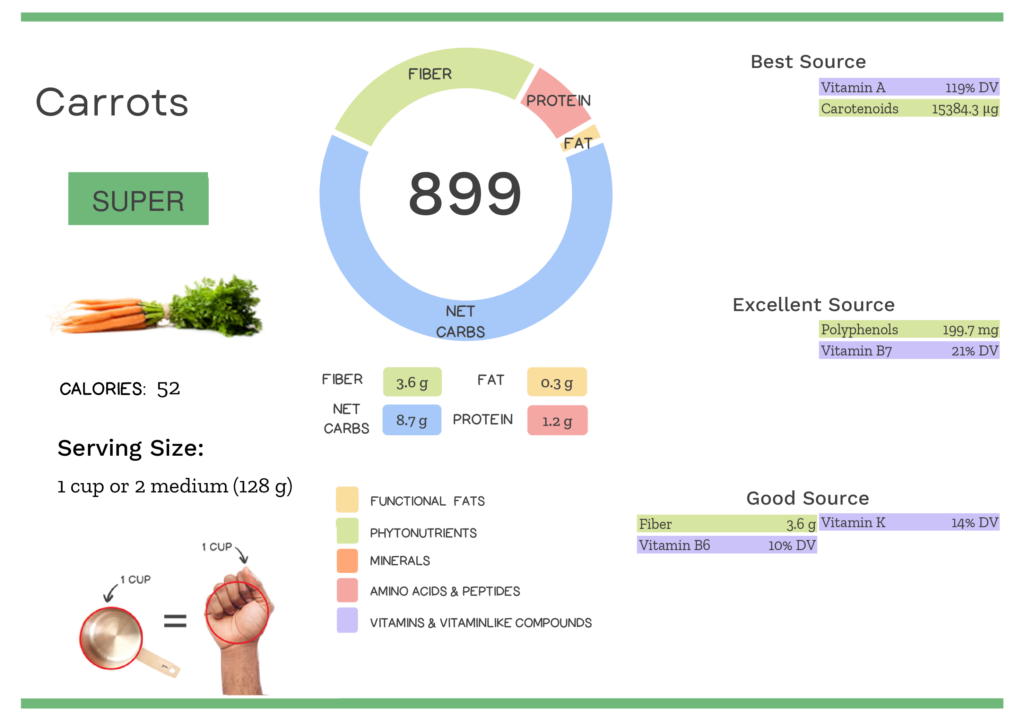
Carrot Nutrition Varies With Cooking and Processing
The Nutrivore Score of carrots varies depending on processing and the method of preparation. For instance, frozen and canned carrots are conveniently available year-round.
| NUTRIVORE SCORE | |
|---|---|
| Carrot, dehydrated | 594 |
| Carrots, baby, raw | 928 |
| Carrots, canned, no salt added, drained solids | 1029 |
| Carrots, canned, no salt added, solids and liquids | 1149 |
| Carrots, canned, regular pack, drained solids | 1029 |
| Carrots, canned, regular pack, solids and liquids | 1234 |
| Carrots, cooked, boiled, drained, with salt | 1019 |
| Carrots, cooked, boiled, drained, without salt | 1043 |
| Carrots, frozen, cooked, boiled, drained, with salt | 987 |
| Carrots, frozen, cooked, boiled, drained, without salt | 994 |
| Carrots, frozen, unprepared | 901 |
| Carrots, raw | 899 |
Does all this nutrition have you “rooting” for carrots? Maybe your friends will too!
Health Benefits of Carrot Nutrients
Let’s take a closer look at all of the best and excellent source of nutrients found in a 1-cup serving of carrots and see how they benefit our health.
Carrots Provide 15384.3 μg of Carotenoids
Carrots are a phenomenal source of carotenoids, containing 15384.3 μg of carotenoids per 1-cup serving!
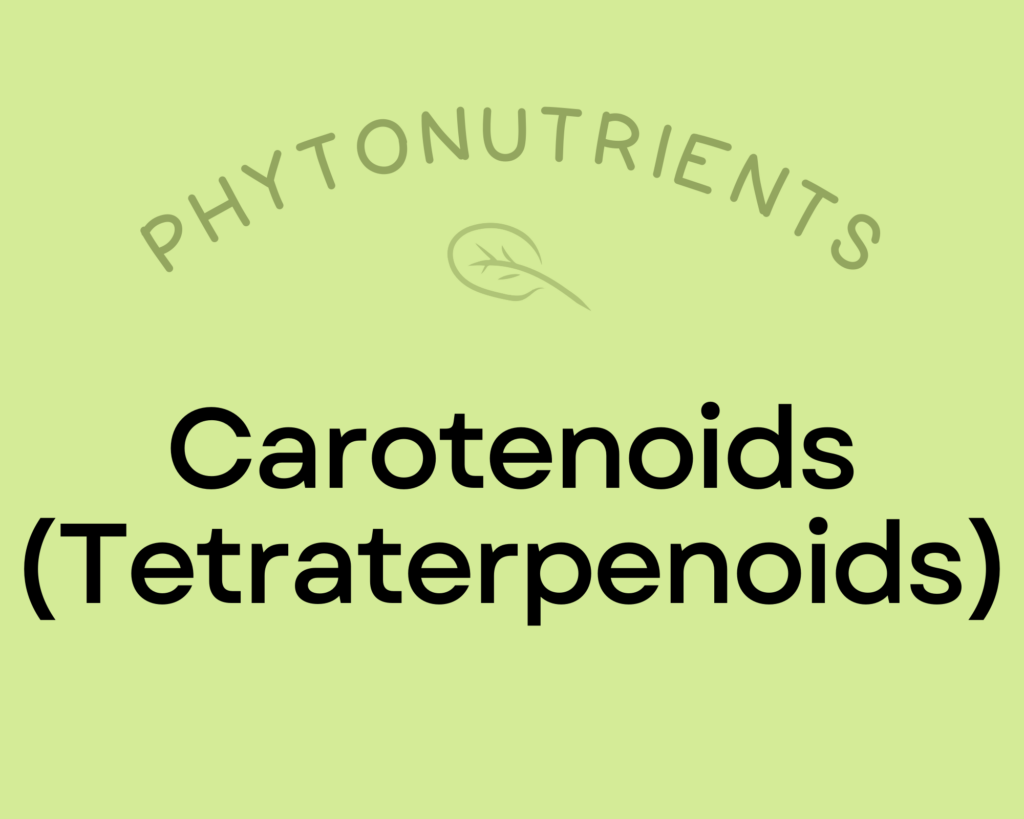
Carotenoids are a diverse group of phytonutrients that are responsible for giving fruits and vegetables vibrant red, orange, and yellow pigmentation. They were one of the earliest phytonutrients ever investigated by scientists (with research dating back to the 1800s!). Across studies, eating foods high in carotenoids appears to reduce the risk of head and neck cancers, supports vision health (particularly age-related eye diseases), may protect against metabolic syndrome and diabetes, and can reduce inflammation. Carotenoids have strong antioxidant properties, and help facilitate communication between cells by promoting the synthesis of connexin proteins, which create gap junctions in cell membranes that allow small molecules to be exchanged (which is part of how cells “talk” to each other!). Consuming carotenoids with fat significantly increases their absorption. Learn more about carotenoids here.
Carrots Provide 119% DV Vitamin A
Carrots are a fantastic source of vitamin A, providing an impressive 119% of the daily value per 1-cup serving!
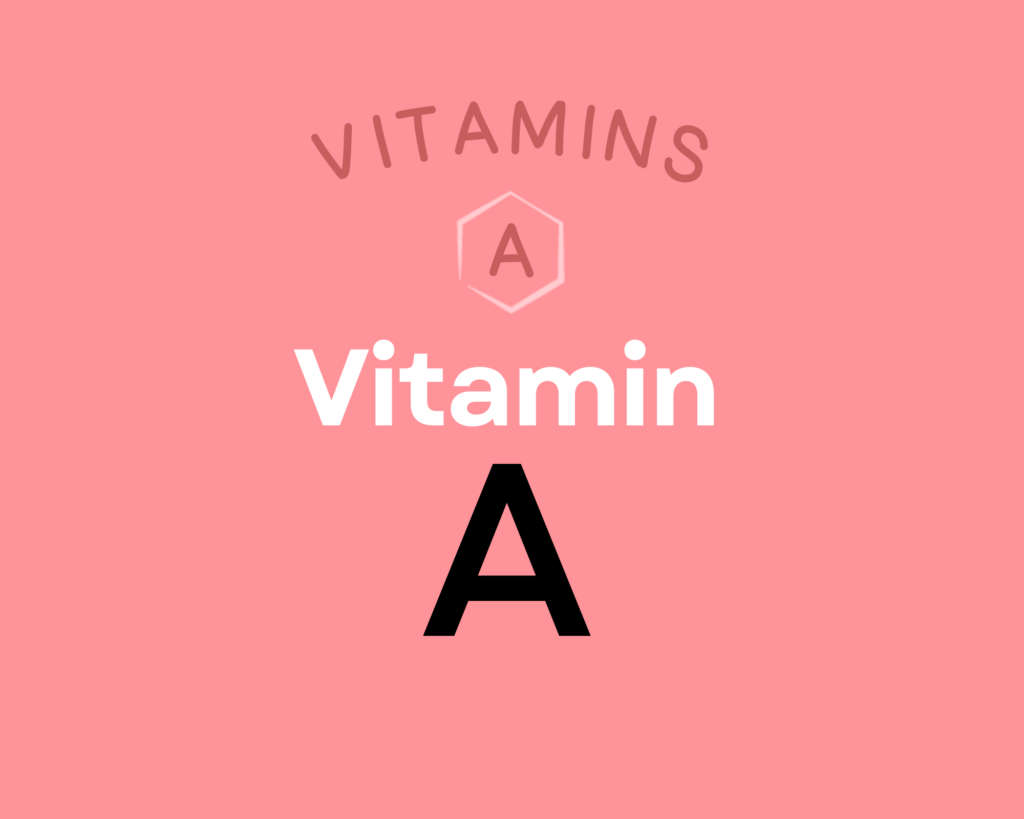
Vitamin A is actually a group of fat-soluble retinoids with vitamin A activity in the body. This nutrient is essential for a number of physiological functions—particularly vision, reproduction, thyroid health, immunity, and cellular communication. Getting enough vitamin A helps protect against some vision disorders (like night blindness and macular degeneration), supports a healthy menstrual cycle and sperm production, reduces infection risk, and allows for proper growth and development from the fetal years through childhood. Learn more about vitamin A here.
Carrots Provide 199.7 mg of Polyphenols
Carrots are an excellent source of polyphenols, providing 199.7 mg of polyphenols per 1-cup serving!
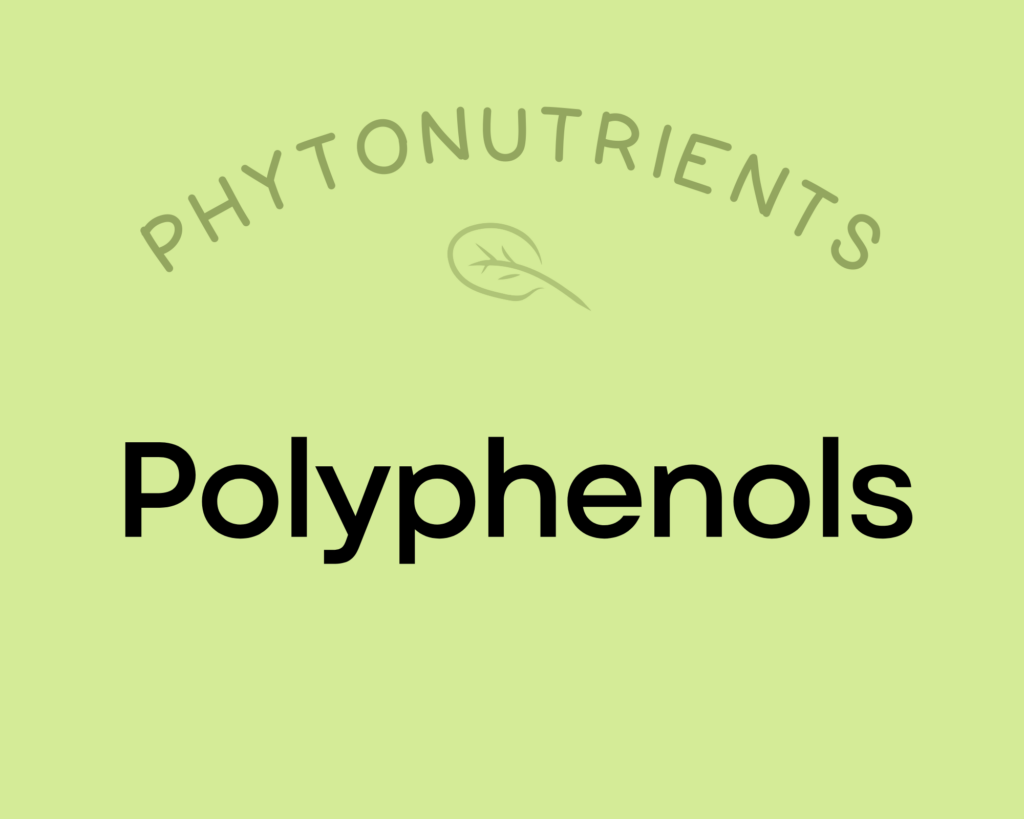
Polyphenols play a huge role in protecting against cancer, heart disease, diabetes, asthma, osteoporosis, neurodegenerative diseases, and other conditions associated with oxidative stress. In fact, a major reason foods like red wine and olive oil (as well as diets rich in both, such as the Mediterranean diet) show up as so beneficial may be due to their high polyphenol content! Along with chronic diseases, supplementing with polyphenols has been shown to protect against infections and reduce the signs of aging. Polyphenols exert their most potent effects by acting as antioxidants—preventing cellular damage by neutralizing hazardous oxygen radicals and improving cellular health as a result (which, in turn, benefits virtually every system in the body). As a result of their antioxidant properties, polyphenols also boost the immune system and protect against both chronic and acute diseases. In addition, polyphenols can help regulate enzyme function, stimulate cell receptors, modulate the functions of inflammatory cells (including T and B lymphocytes, macrophages, platelets, and natural killer cells), alter adhesion molecule expression, affect nerve cells and cardiac muscle cells, and exert antiviral effects. Learn more about polyphenols here.
Carrots Provide 21% DV Vitamin B7 (Biotin)
Carrots are also an excellent source of vitamin B7 (biotin), providing 21% of the daily value per 1-cup serving!
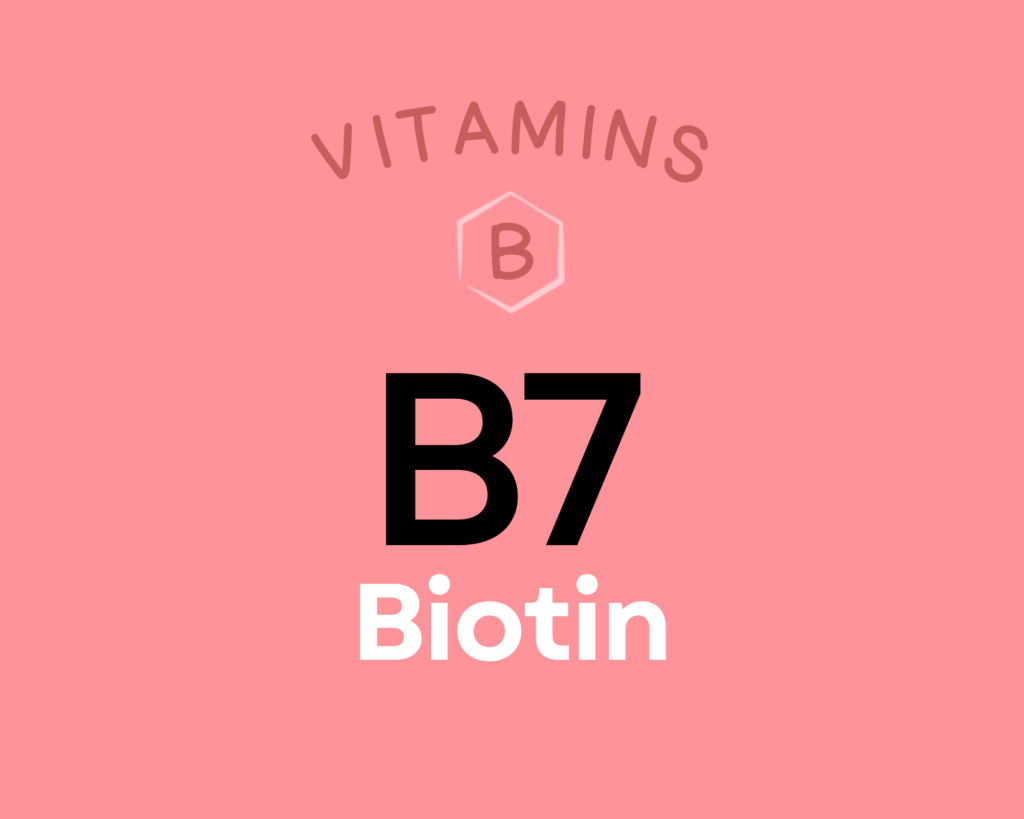
Biotin is a water-soluble B vitamin, also known as vitamin B7. Like other B vitamins, it plays an important role in energy metabolism (serving as a coenzyme for five carboxylase enzymes), neurotransmitter production, cellular function, and the function of various organs. Getting enough biotin can help support healthy nail and hair growth. It’s also particularly important during pregnancy, with low intakes increasing the risk of premature delivery and birth defects. There’s even some evidence biotin can benefit diabetics and reduce functional disabilities in people with multiple sclerosis. Learn more about biotin here.
Learn What Foods Are the Best Sources of Every Nutrient
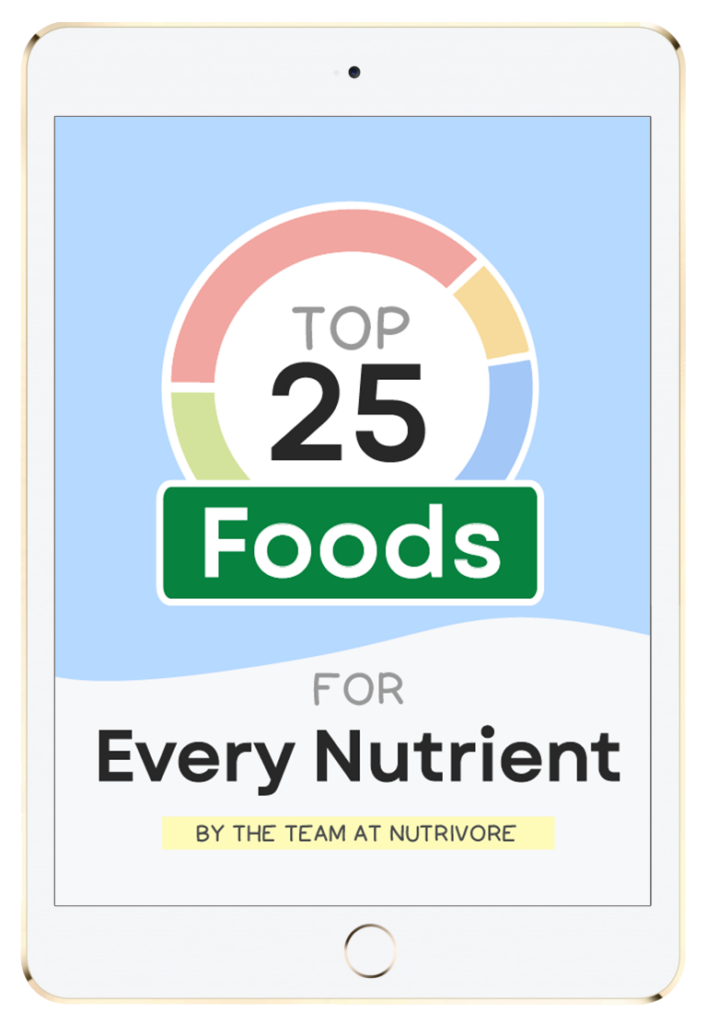
The Top 25 Foods for Every Nutrient
The Top 25 Foods for Every Nutrient e-book is a well-organized, easy-to-use, grocery store-friendly guide to help you choose foods that fit your needs of 43 important nutrients while creating a balanced nutrient-dense diet.
Get two “Top 25” food lists for each nutrient, plus you’ll find RDA charts for everyone, informative visuals, fun facts, serving sizes and the 58 foods that are Nutrient Super Stars!
Buy now for instant digital access.
How Much Carrot Should We Eat Per Day?
When it comes to nutrient-dense carbs, root veggies are hard to beat!
Every serving of fresh, whole vegetables or fruit we eat daily reduces the risk of all-cause mortality by 5% to 8%, with the greatest risk reduction seen when we consume five or more servings per day. In fact, consuming 800 grams of vegetables and fruits daily reduces all-cause mortality by 31% compared to eating less than 40 grams daily. A 2017 meta-analysis showed that 2.24 million deaths from cardiovascular disease, 660,000 deaths from cancer, and 7.8 million deaths from all causes could be avoided globally each year if everyone consumed 800 grams of veggies and fruits every day.
Eating vegetables and fruit in abundance lowers risk of cancer, cardiovascular disease, type 2 diabetes, obesity, chronic kidney disease, osteoporosis and bone fragility fractures (including hip fracture), cognitive impairment and dementia (including Alzheimer’s disease), neurodegenerative diseases, asthma, allergies, chronic obstructive pulmonary disease, age-related macular degeneration, cataracts, glaucoma, depression, ulcerative colitis and Crohn’s disease, rheumatoid arthritis, inflammatory polyarthritis, non-alcoholic fatty liver disease, acne, seborrheic dermatitis, and lowers markers of inflammation. Learn more in Importance of Vegetables and Fruit.
Covering half of your plate with a variety of vegetables (and three quarters of your plate if your starchy food is a root vegetable or winter squash) at each meal is a simple way to easily achieve the goal of 5 or more servings of vegetables daily.
Studies show that, for every 100 grams per day increase in root vegetable intake, there was a 24% reduced risk of all-cause mortality! And, looking at carrots specifically – one meta-analysis of studies found that carrot consumption was associated with an 18% reduced risk of prostate cancer in men, while another large prospective cohort study found that carrots were associated with a 32% lower risk of cardiovascular disease. It’s always best to mix up the veggies you eat day to day (aiming for a wide variety of different vegetables and fruits throughout the week), and carrots definitely deserve a place at the table.
Easily track your servings of Nutrivore Foundational Foods!
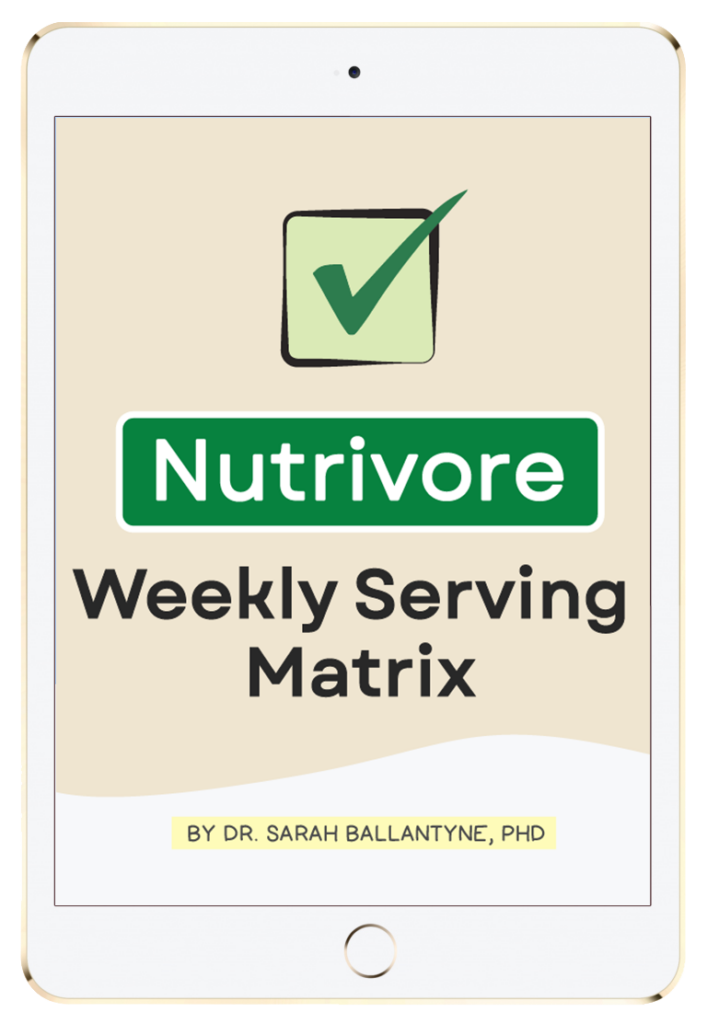
The Nutrivore Weekly Serving Matrix
The Nutrivore Weekly Serving Matrix digital resource is an easy-to-use and flexible weekly checklist designed to help you maximize nutrient-density and meet serving suggestions of Nutrivore foundational foods, all without having to weigh or measure your foods!
Includes a 22-page instructional guide and downloadable interactive guides.
Buy now for instant digital access.
Citations
Expand to see all scientific references for this article.
Clements RS Jr, Darnell B. Myo-inositol content of common foods: development of a high-myo-inositol diet. Am J Clin Nutr. 1980 Sep;33(9):1954-67. doi: 10.1093/ajcn/33.9.1954. PMID: 7416064.
Han JH, Yang YX, Feng MY. Contents of phytosterols in vegetables and fruits commonly consumed in China. Biomed Environ Sci. 2008 Dec;21(6):449-53. doi: 10.1016/S0895-3988(09)60001-5. PMID: 19263798.
Phenol-Explorer: Carrot, raw
Pravst I, Zmitek K, Zmitek J. Coenzyme Q10 contents in foods and fortification strategies. Crit Rev Food Sci Nutr. 2010 Apr;50(4):269-80. doi: 10.1080/10408390902773037. PMID: 20301015.
USDA Food Central Database: Carrots, raw
Watanabe T, Kioka M, Fukushima A, Morimoto M, Sawamura H. Biotin content table of select foods and biotin intake in Japanese. Int J Anal Bio-Sci. 2014. Vol 2(4):109-125.


